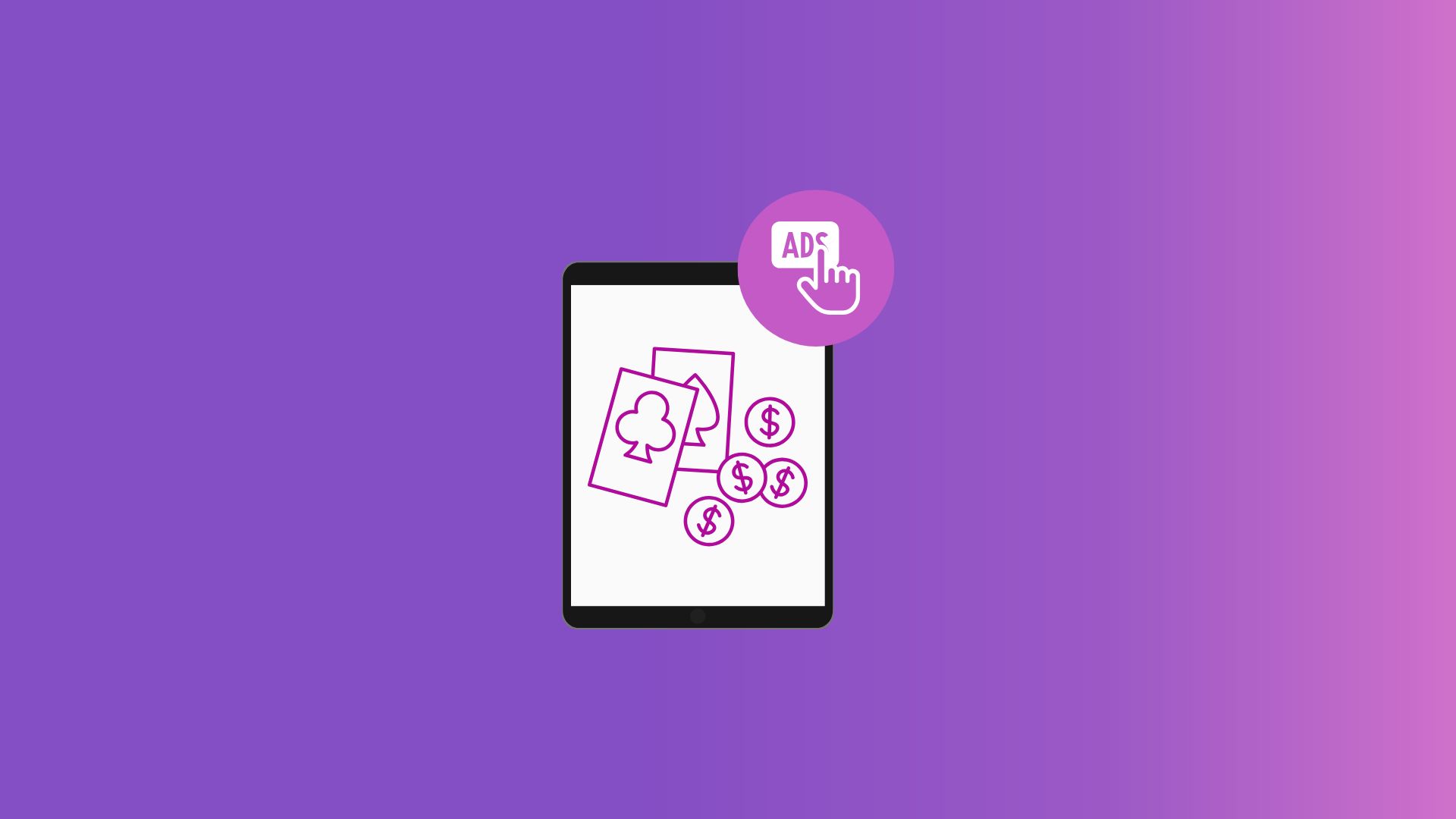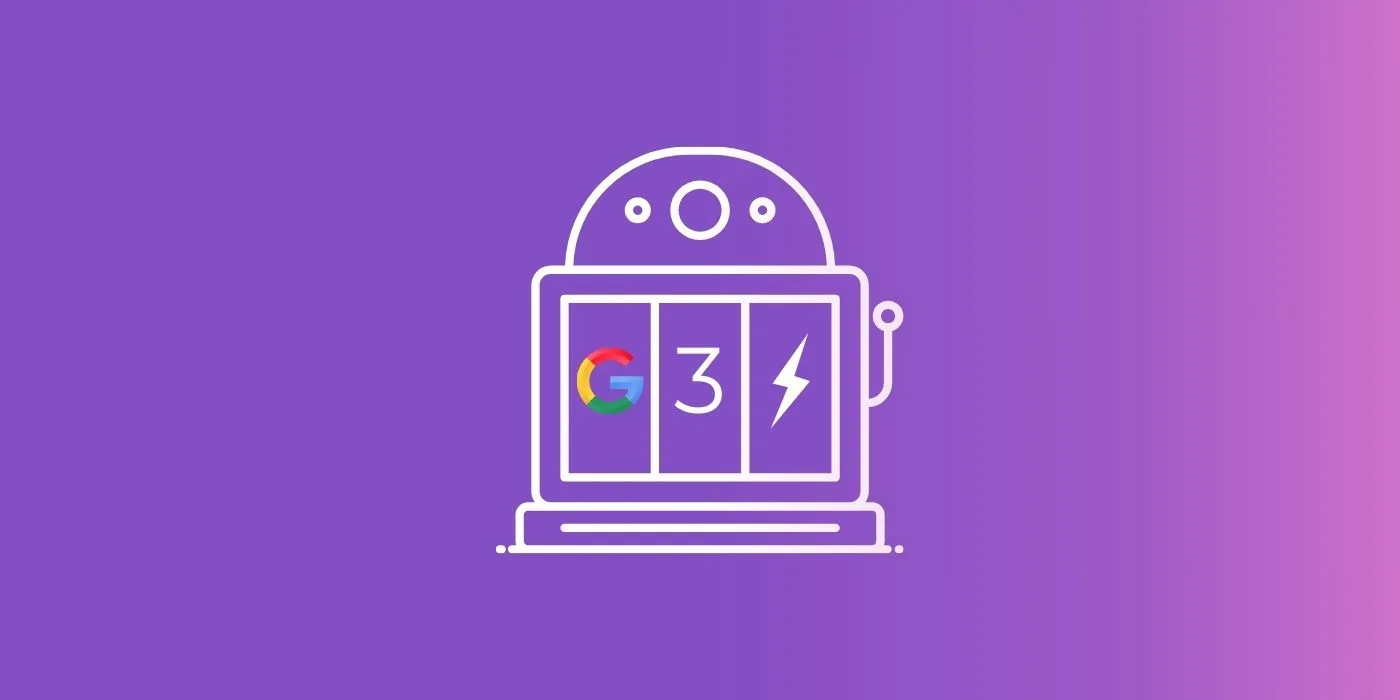Gambling Ads: Policies, Regulations, and Best Practices

Google Ads Gambling Policies
Let’s start with Google Ads gambling policies, which is the biggest platform for gambling ads.
Google’s stance on online gambling ads
In 2004, Google banned gambling ads on their platform. They brought it back in 2008 and has since expanded its market.
The search engine giant has become a channel for online gambling ads. This includes advertising efforts from online casinos and sports betting platforms. However, it only allows certain types of gambling advertising.
Google enforces varying policies for online and land-based casinos. Here’s a rundown of what Google allows and prohibits in gambling advertising.
Allowed gambling advertising forms:
- Online gambling: Allows promotion of Internet-based, real-money gambling. Also allows promotion of sites with content links to gambling activities.
- Online non-casino: Allows internet-based, real-money games. These are contests where real monetary wagers and prizers are involved.
- Social casino: Allows promotion of online simulated gambling games. However, these should not offer real monetary value.
Prohibited gambling advertising forms:
- Social casino: Doesn’t allow links that offer real monetary value or prizes. Also, promotion of “real money gambling” destinations are not allowed.
Google regularly updates its gambling advertising policies. Their policies are mostly grounded on gambling laws in a country. Moreover, online gambling advertising revolve around these factors:
- Promoting responsible gambling measures
- Preventing gambling addiction among bettors
- Adhering to regulatory requirements in a particular jurisdiction
Gambling platforms should stay updated on these advertising restrictions. It’s as important as studying the online gaming and betting market.
Prohibition of remarketing for gambling advertising
Remarketing refers to targeting users who previously interacted with an advertiser’s content. Google strictly prohibits this gambling advertising tactic.
Google doesn’t allow advertising remarketing for the following reasons:
- Responsible gambling practices: Regulatory bodies require promotion of responsible gambling. Remarketing could encourage people to increase their gambling activities.
- Potential for addiction: Consumer protection is a priority. Remarketing could increase one’s impulsivity. Therefore, it could lead to addiction on gambling.
- Regulatory compliance: Remarketing isn’t aligned with Google’s policies. It could also violate policies of licensing authorities.
Still, gambling operators find ways to reach their advertising target audience. We’ll discuss proven targeting strategies in the next section.
Effective Targeting Strategies for Gambling Ads
Expand your gambling advertising reach with these effective targeting strategies.
Contextual targeting
The first goal is to align your gambling ads to your customers’ interests. That’s what contextual targeting is all about.
This targeted approach is not just applicable to gambling advertising. In fact, it’s a trending principle of iGaming content marketing today. The idea is to show content (or gambling ads) that you audience want to see.
Here are examples of contextual targeting in gambling advertising:
- Place sports gambling ads on sports websites. These could be sports news websites, official team websites, or fantasy sports websites.
- Place a casino ad on gaming review sites. There are high-authority websites that review online casino games. Players usually read game reviews and updates of sporting events.
- Place ads on major sports competitions. Bookmakers today allot marketing spending on events like the Super Bowl. This gets them exposure on TV and other digital channels. However, budget spending for these ads could be significant.
Advertisers use contextual advertising tools to optimize their reach. AdButler and DoubleClick are reliable contextual ad platforms.
Keyword targeting
The concept of keyword research can be applied to gambling ads. Essentially, you’re bidding on keywords that your audience typically search. It’s a great way to leverage user intent into ad opportunities.
Typically, here’s how the keyword targeting process looks:
- Use keyword research tools like Google Keyword Planner. Target long-tail keywords to maximize your ad spending. These are more specific keywords like “best online sportsbook vouchers”.
- Segment your keywords according to search intent. Create ad groups for each gambling content. Separate your sports betting ad group from other gambling activities.
- Incorporate keywords to your ad copies. Ensure that you create unique copies for each ad group. Uniqueness could invite people to click on your gambling ads.
- Set your bids for each keyword. Look at performance and competition as driving factors.
Moreover, ensure that you have a compelling landing page. A poorly written landing page wastes your ad spending.

Demographic targeting
Demographic targeting is another ad strategy to reach more people. This ad strategy is usually used for social media platforms like Facebook.
However, demographic targeting requires deep knowledge of your audience. Here are demographic factors that gambling companies target:
- Age: Vary your ad copies across different age groups. Younger adults might go for a tech-based casino game. Older people might be interested in classic lotteries and events.
- Location: This allows you to target specific geographic locations. However, policies could vary in many countries. There may be gambling ads that aren’t allowed in different countries.
- Income level: Are your players high-rollers or beginners? You could uncover that through their income level. Leverage loyalty programs and VIP promos to high-income players.
Violating advertising policies could be an effect of demographic targeting. Ensure that your gambling ads are within legal measures.
Lookalike audiences
Lookalike Audiences is a segmentation tool you can use on Facebook. It targets users who share similar characteristics with your customer base.
This gambling advertising strategy is great for a big business. Per Facebook, advertisers can create up to 500 lookalike audiences from a single source. It’s an automation tool that could streamline your casino marketing strategy.
Of course, it’s important to stay within legal compliance. Your gambling ads should adhere to age requirements and responsible gambling measures.
Also, be wary of this strategy’s possible pitfalls. When not used properly, Lookalike Audiences could lead to:
- Poor profiling of seed audience
- Ad fatigue due to overtargeting
- Irrelevant copies of gambling ads
Be mindful of information you input, even if it’s an automated tool.
Tips for Prioritizing Responsible Advertising
Follow these responsible advertising tips to avoid legal repercussions to your gambling ads.
Highlighting entertainment value
Moneymaking is surely the essence of gambling ads. But focusing on this image is not responsible advertising. Instead, try to showcase more of your entertainment value.
Here’s how you can highlight entertainment value in your ads:
- Social interaction: Casinos are meant for social gaming. Emphasize the multiplayer nature of the game. In your ads, mention that they can play or compete with their friends.
- Skill gaming: Players are big on showcasing their skills. Your ads should say that it isn’t about just placing bets. Highlight the importance of skills and strategies in your betting ads.
- Multi-interest platform: The gambling market is diverse in nature. Players want to gamble on different contests. Your gambling advertising strategy should touch on different player interests.
Promote moderate gambling through these touchpoints. Avoid emphasizing on potential winnings in your ads. Focus on providing social opportunities and entertainment.
Implementing age verification
Your ads should only reach people of required gambling age. That’s the number one example of advertising responsible gambling.
Implementing age verification is a staple among gambling establishments. That includes physical lotteries or Internet casinos. Only people of required age should be allowed to gamble.
Here are age verification protocols you can use for your ads:
- Place age-gated protocols on your landing pages. People who click on your ads should go through age verification first.
- Deliver ads on regions with required gambling ages. You can set this through geo-targeting methods. Google Ads and social media platforms offer this ad service.
- Don’t accept credit card payments right away. Require essential information like birthdate verification.
You can also use a third-party age verification service. Jumio and IDnow provide age verification service for gambling ads. You can use these tools for your ads.

Including responsible gambling resources
Gambling platforms have increased around the world. This makes it more important to promote responsible gambling.
You can advertise responsible gambling in many ways. It’s not just on your ads. Betting companies can also utilize their content.
Gambling establishments and bookmakers can use these resources:
- In ads: Include gambling resources links in your ads. It can even be a brief note or message. You can place a “Gamble Responsibily” note on your ads. Moreover, you can place a direct link to a responsible gambling page.
- Landing page: Gambling companies provide resources on landing pages. There should be tips and information on responsible gambling. In your ads, you can mention this through a link or note.
- Interactive advertising: Get more creative with interactive advertising. These ads use self-assessment quizzes and polls to promote responsible gambling. You can place these on your ads or on your website.
Moreover, ensure that you have necessary information for responsible gambling. Secure contact information and helplines of support organizations. Several gambling companies directly partner with these organizations.
Prioritize responsible gambling when starting your own online casino. This will win you a good image among consumers and licensing authorities.
Work with a digital marketing agency
Putting up a gambling ad isn’t as easy as it looks. You have to navigate certain ad restrictions, whether on TV or on the Internet.
This is the reason why gambling companies work with agencies. Digital marketing agencies know the ins and outs of digital advertising. They’ll help you put up legally-compliant, engaging ads.
There are certain factors to consider when choosing an agency. Here are several tips that are related to gambling ad placements:
- Identify agencies that have previously worked on the gambling niche. Check their ad portfolios on both TV and online advertising.
- Book consultation calls with them. Don’t commit to a subscription or plan right away. Gauge their expertise on gambling ad placements.
- Determine the ad service types they offer. Opt for agencies that provide omni-channel ad placements. This includes ad creation on TV channels, mobile apps, and digital platforms.
Moreover, look for agencies that provide 24/7 support. For instance, marketing agencies like Fortis Media offer dedicated account managers. This is an essential feature of an ad service agency.
Paid search and other ad channels are difficult to navigate. We recommend working with marketing agencies for your ad placement needs.
Conclusion
Violating platform policies could waste your investment on ad placements. There’s a possibility that your gambling ads won’t show. Plus, you’re risking the reputation of your gambling brand.
Ensure that your ad copies follow platform policies. Each ad channel, including TV placements, implement varying regulations. Stay updated with these policies in putting up gambling ads.
Moreover, you can consult digital marketing agencies. They have gambling legality experts who’ll check your ad placements. This way, your ads can safely reach your audience.
FAQs
Can I advertise gambling on social media?
Yes, most social media platforms allow gambling advertising, granted that advertisers follow their protocols. These protocols involve platform-specific policies, geographic restrictions, ad content, and business permits. Among social media platforms, Meta-owned Facebook and Instagram are more lenient in allowing betting ads.
What content should be avoided in gambling ads?
When advertising gambling-related brands, avoid content that promotes impulsive gambling, exaggerated payouts, and financial solutions. Moreover, ensure that your ads don’t target people who are not of legal gambling age. These rules apply when putting up Google ads or social media ads.
How do I ensure compliance with local gambling ad regulations?
Your advertising copy, platform, and gambling operator should all align with local gambling advertising policies. Countries have varying laws on gambling ads, so ensure that you identify these location-specific gambling laws. Moreover, you can consult legal professionals and have them check the legality of your ads.
Can influencers promote my gambling brand?
Influencer marketing is an effective strategy in gambling advertising. To ensure the success of your ad campaign, partner with influencers who are relevant in your niche. Communicate your content expectations to the influencer and ensure that the campaign stays within the advertising policies in your target market.
What are the penalties for illegal gambling in New Jersey?
The penalty for illegal gambling in NJ depends on the offense. For instance, if you offer unauthorized or unlawful gambling, you can be convicted of a crime in the fourth degree. The maximum fine is $200,000, and you can face 18 months of imprisonment. Committing underage gambling in NJ is treated as a misdemeanor, and the perpetrator can be fined up to $1,000.
Read our other articles

iGaming SEO: The Ultimate Guide to Ranking iGaming Sites in 2025


How SEO and PPC Work Together: A Practical Guide


What is a PPC Agency? A Comprehensive 2025 Guide






